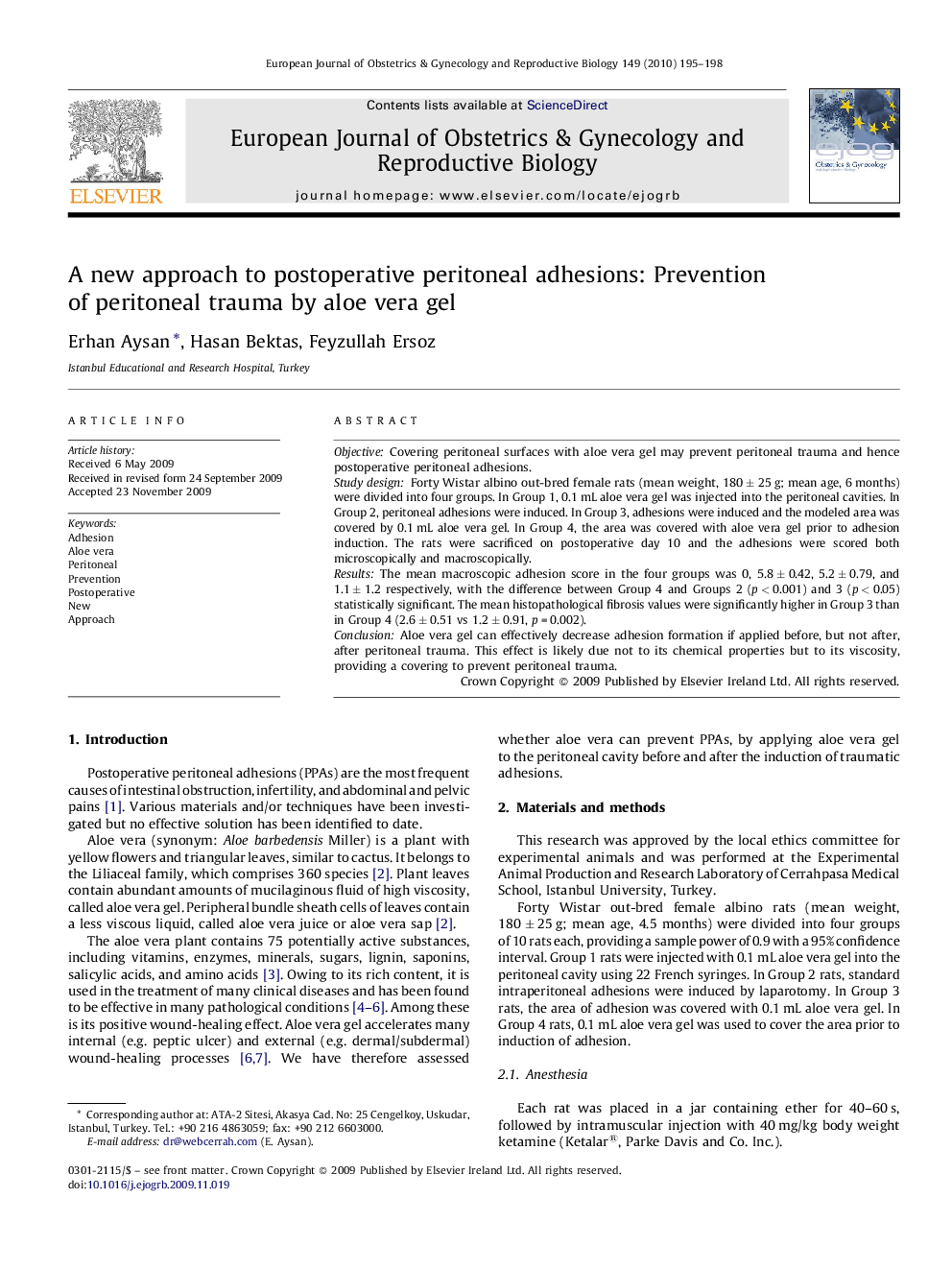| Article ID | Journal | Published Year | Pages | File Type |
|---|---|---|---|---|
| 3920983 | European Journal of Obstetrics & Gynecology and Reproductive Biology | 2010 | 4 Pages |
ObjectiveCovering peritoneal surfaces with aloe vera gel may prevent peritoneal trauma and hence postoperative peritoneal adhesions.Study designForty Wistar albino out-bred female rats (mean weight, 180 ± 25 g; mean age, 6 months) were divided into four groups. In Group 1, 0.1 mL aloe vera gel was injected into the peritoneal cavities. In Group 2, peritoneal adhesions were induced. In Group 3, adhesions were induced and the modeled area was covered by 0.1 mL aloe vera gel. In Group 4, the area was covered with aloe vera gel prior to adhesion induction. The rats were sacrificed on postoperative day 10 and the adhesions were scored both microscopically and macroscopically.ResultsThe mean macroscopic adhesion score in the four groups was 0, 5.8 ± 0.42, 5.2 ± 0.79, and 1.1 ± 1.2 respectively, with the difference between Group 4 and Groups 2 (p < 0.001) and 3 (p < 0.05) statistically significant. The mean histopathological fibrosis values were significantly higher in Group 3 than in Group 4 (2.6 ± 0.51 vs 1.2 ± 0.91, p = 0.002).ConclusionAloe vera gel can effectively decrease adhesion formation if applied before, but not after, after peritoneal trauma. This effect is likely due not to its chemical properties but to its viscosity, providing a covering to prevent peritoneal trauma.
